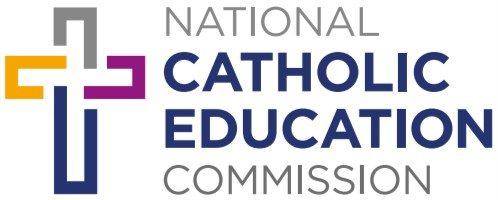Let us thank all those who teach in Catholic schools. Educating is an act of love: it is like giving life.
– Pope Francis. [reference March 1 2014 (tweet) ]
The Catholic school is one significant means by which the Church implements its mission and vision. Catholic schools offer a distinctive view of education based on the Gospel and the Catholic tradition.
In this context a Catholic school strives to develop the religious understanding of students and to nurture their growth in faith. In order to achieve the mission teachers in Catholic schools are vital and essential.
Jesus Christ is the foundation of the whole educational enterprise of the Catholic school. It has always been held ‘from the first moment that a student sets foot in a Catholic school, he or she ought to have the impression of entering a new environment, one illumined by the light of faith, and having its own unique characteristics” (The Religious Dimension of Education in a Catholic School 25).
Teachers in Catholic schools contribute to, through their teaching and example, the efforts of the school to harmonise faith, culture and life. This requires that they have particular knowledge and skills. Teachers of religious education, as well as those leading Catholic schools require additional professional competence in scripture, theology, religious education and faith formation and a developed sense of confidence in their delivery.
Therefore the dioceses across Australia have for many decades developed accreditation policies for the teachers in Catholic schools. These policies are founded in the Church’s vision and its canon law.
Code of Canon Law, Canon 804
§1 The formation and education in the Catholic religion provided in any school, and through the various means of social communication, is subject to the authority of the Church.
§2 The local Ordinary is to be careful that those who are appointed as teachers of religion in schools, even non-Catholic ones, are outstanding in true doctrine, in the witness of their Christian life, and in their teaching ability.
These accreditation policies have been formulated on the basis that all teachers in Catholic schools contribute to the faith of the school community. Teachers in Catholic schools, through their teaching and witness to their faith, create ‘a synthesis of culture and faith, and a synthesis of faith and life’ (The Catholic School, 37). There is the expectation, therefore, that teachers in Catholic schools will have the necessary knowledge of and commitment to the Church’s teachings and an understanding of the ethos of the Catholic school.
This is especially so for teachers of Religious Education who must be well prepared for the specific and important role they play in the transmission of the Church’s faith through teaching Religious Education programs. These two aspects ensure a firm basis for teachers and students to make an ongoing commitment to Jesus Christ.
Accreditation is one means of ensuring that teachers’ professional qualifications and competencies are formally recognised by Catholic education authorities in respect to the particular character and educational philosophy of Catholic schools.
The diocesan specification of requirements helps guarantee the excellence of Religious Education and contributing to the general education in Catholic schools. It also recognises the contribution of teachers and their responsibility for the handing on of the Catholic faith and its tradition which influence all areas of the curriculum.
Accreditation is also an opportunity for teacher professional development in that it is directed to assist teachers come to a better knowledge of the philosophy, duties, responsibilities and understanding the message of the Gospel and of Catholic schooling so that they will be competent in the promotion of its religious dimension.
Requirements for Accreditation
Following is a summary of the key features and requirements of accreditation policies across the Catholic dioceses of Australia. Each state or territory peak body, diocesan or school authority has its own distinctive means of presenting and specifying requirements of accreditation.
Various courses are available to teachers that satisfy the accreditation policies of these requirements. While the determination of accreditation in one diocese may not be sufficient for accreditation in all other dioceses, the work done for accreditation in each diocese is recognised towards accreditation by all other dioceses.
It is the responsibility of the individual teacher to be aware of the diocesan requirements for the school in which employment is sought.
For more information visit the relevant authority below:
Add an Accordion to the page.
- Catholic Schools Office Armidale
- Catholic Education Diocese of Bathurst
- Catholic Schools Broken Bay
- Catholic Education Archdiocese of Canberra & Goulburn
- Diocese of Lismore Catholic Schools
- Catholic Schools Office Diocese of Maitland-Newcastle
- Catholic Schools Parramatta Diocese
- Sydney Catholic Schools
- Catholic Education Diocese of Wagga Wagga
- Catholic Education Wilcannia-Forbes
- Catholic Education Diocese of Wollongong
The Religious Education Accreditation Policy in Queensland includes the Catholic schools in the following dioceses:
- Brisbane Catholic Education
- Catholic Education Dioceses of Cairns
- Catholic Education Rockhampton
- Diocese of Toowoomba Catholic Schools
- Townsville Catholic Education Office
- The Religious Education Accreditation Policy for South Australia includes Catholic schools in the Archdiocese of Adelaide and the Diocese of Port Pirie.
- The Religious Education Accreditation Policy for Victoria applies to Catholic schools in the following dioceses.
- Melbourne Archdiocese Catholic Schools
- Diocese of Sale Catholic Education Ltd
- Catholic Education Sandhurst
- The Religious Education Accreditation Policy for Western Australia applies to Catholic schools in the Archdiocese of Perth and the Dioceses of Broome, Bunbury and Geraldton.
